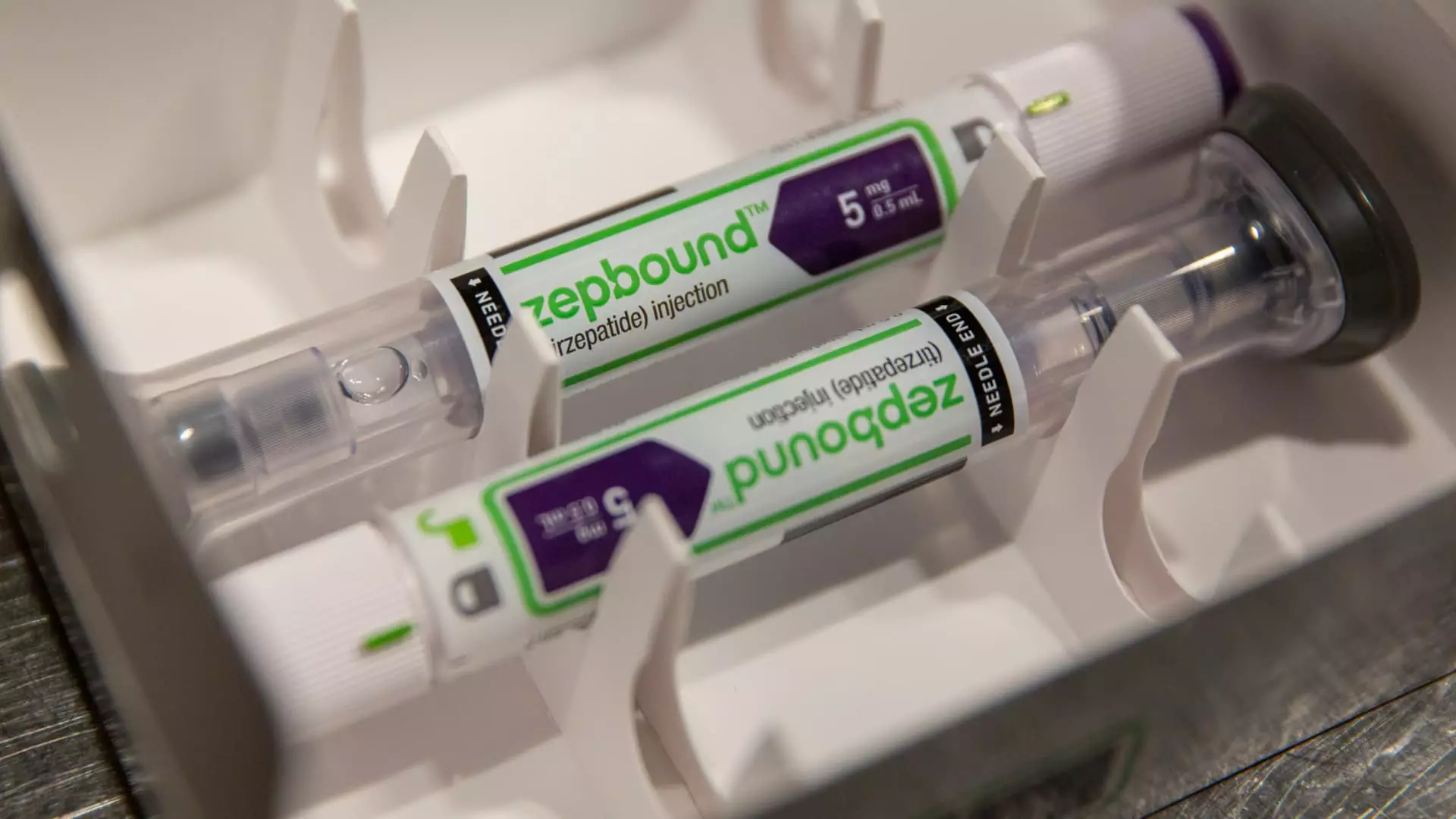In a crucial development in the medical field, Eli Lilly’s weight loss drug, Zepbound, has recently received approval from the Food and Drug Administration (FDA) for a significant new application—to treat moderate-to-severe obstructive sleep apnea (OSA) in patients suffering from obesity. This advancement signifies an expansion of Zepbound’s capabilities beyond its initial design as a weight-loss drug, which entered the market only late last year. The new approval could also lead to increased insurance coverage for patients in the United States—a significant barrier for many seeking effective treatment options.
Obstructive sleep apnea is a prevalent condition affecting an estimated 80 million individuals in the United States, with around 20 million cases classified as moderate-to-severe. Alarmingly, 85% of individuals suffering from this condition remain undiagnosed, often misattributed to mere snoring. OSA occurs when the throat muscles intermittently relax and block the airway during sleep, resulting in disrupted sleep patterns and increases in daytime drowsiness.
Julie Flygare, President and CEO of Project Sleep, emphasizes the severity of OSA and the importance of acknowledgment and education around its symptoms. “Too often, OSA is brushed off as ‘just snoring’—but it’s far more than that,” she insists, highlighting the need for awareness around the condition and the actionable treatments now available, such as Zepbound.
Eli Lilly’s decision to explore Zepbound’s effectiveness against OSA is based on promising clinical trial results. The studies demonstrated that the weekly injection was markedly more effective than a placebo in mitigating the severity of OSA in obese patients after one year of treatment. According to the findings, nearly half of the participants receiving Zepbound achieved “disease resolution,” a significant outcome that denotes a reduction in AHI events—an essential metric used to evaluate OSA severity.
In these trials, the efficacy was particularly notable; 43% of participants in one study and 51.5% in another reached this threshold of reduced AHI events when administered the highest dose of Zepbound. By contrast, only approximately 15% of the placebo group reported similar improvements, showcasing a clear distinction in effectiveness. This revelation paints Zepbound as not just a weight-loss solution but a potential game-changer for OSA patients.
Currently, treatment options for OSA are limited, typically restricted to cumbersome continuous positive airway pressure (CPAP) machines that patients need to wear during sleep. This not only impacts patient compliance but can lead to reduced quality of life. Zepbound provides an attractive alternative— a weekly injection— that could increase adherence to treatment and improve health outcomes for patients who may have struggled with traditional therapies.
Additionally, Zepbound’s introduction into the market stands to challenge competitors, such as Wegovy from Novo Nordisk, which has not secured FDA approval for OSA treatment. Eli Lilly’s innovative approach raises the bar for pharmaceutical companies developing therapies aimed at both obesity and sleep-related breathing disorders.
Eli Lilly is planning to launch Zepbound for OSA use in early 2024. This timeline has generated anticipation within the medical community as healthcare providers and patients alike hope that this new treatment will incite overdue discussions about sleep health. Furthermore, there is significant potential for Zepbound to garner broader insurance coverage, especially since many obesity-related drugs are not yet included in Medicaid and Medicare plans unless tied specifically to a health benefit.
The mounting evidence supporting the benefits of GLP-1 receptor agonists like tirzepatide, found in Zepbound, is crucial in this regard. As these therapies gain traction and visibility amongst healthcare providers and patients, Zepbound could help reshape the dialogue around treatment options for obesity-related conditions and their intersection with sleep disorders.
The approval of Eli Lilly’s Zepbound for the treatment of obstructive sleep apnea marks a significant milestone in addressing a vast and often-overlooked health issue impacting millions. With its potential to not only aid in weight management but also alleviate OSA, Zepbound embodies a transformative approach to modern medicine. As healthcare systems adapt to incorporate this promising solution, the implications for patient health outcomes are poised to be profound. The hope is that with increased awareness and innovative treatments, we can shift paradigms surrounding sleep apnea and obesity into a narrative of prevention, understanding, and effective management.

